My room at the Dupre wasn’t noteworthy in any way except for the vast beige curtains. Normally neutral colors are able to mask the most fantastic things; put Godzilla in a beige pantsuit and he could destroy all of Japan without anyone so much as stopping to ask him for the time. In the case of these curtains, even beige couldn’t conceal their being the size of several football pitches. There was enough fabric on display to reupholster the sofas of every grandmother in Florida, with enough left over to make Gojira that pantsuit. Whichever humanitarian had last cleaned the room left the air conditioning on so that the pleasing glacial air I had enjoyed in the lobby was to be found here as well. I dropped my bag, magically four-hundred and seventy-two pounds lighter, on the king-size bed and changed out of clothes that were sweat-stained into clothes that soon would be. My nod to futility finished I turned my attention to the rest of the afternoon, and my checklist.
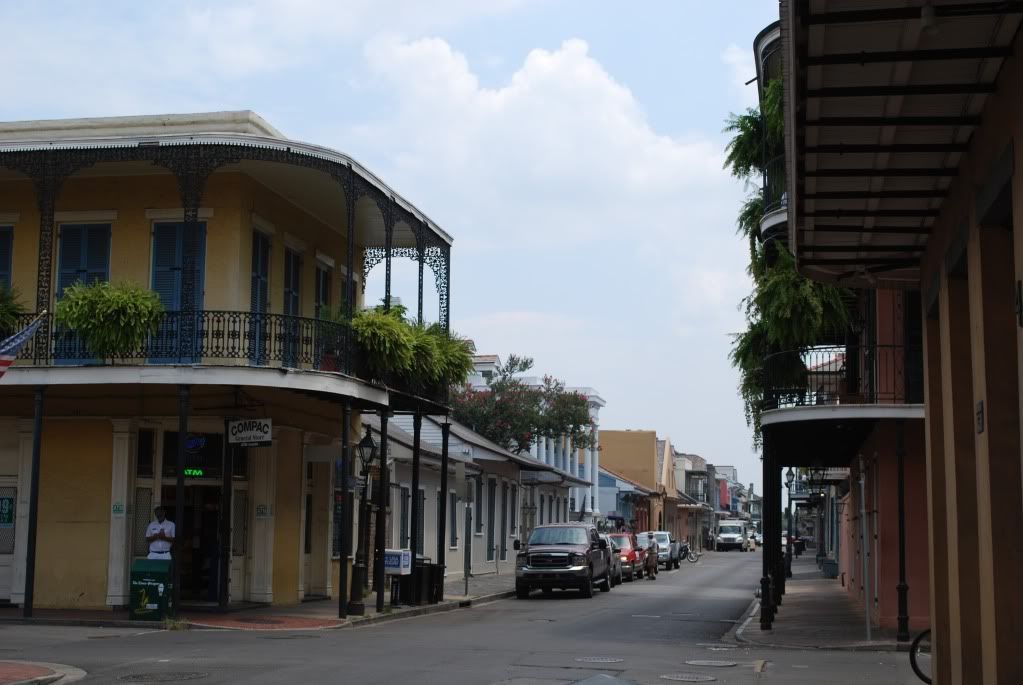 |
| The Quarter |
I have an informal checklist that I generally adhere to when I arrive in a new city. The items are in no particular order and while it’s not vital that I get to all of them I do try. So far today I had already accomplished two: “Find the hotel without getting mugged” and “humiliate myself in front of a woman”. Since I’d started dating Nicky I had been able to retire a few items from the list, like: “Strike out at the bar and come home alone, but not before buying some Jim Beam on the way” and “wake up in the tub”. Not all of the items are related to alcohol, at least not specifically, but it was late afternoon and so logically the next item to be checked off had to be “find a bar”. I don’t make the rules.
Back into the elevator and down to the lobby. Rhonda was gone, so I was spared another performance of “Socially Awkward Theatre” before I had to walk back out into the living sauna outside. My shirt stuck to me immediately and I didn’t even bother trying to tug it away – it was only going to go right back where it started. On the corner a tout tried handing me a restaurant brochure but I begged off; over the course of the next couple days we’d get used to each other and instead of pimping whatever jambalaya joint was paying him I started getting “Hey brother”.
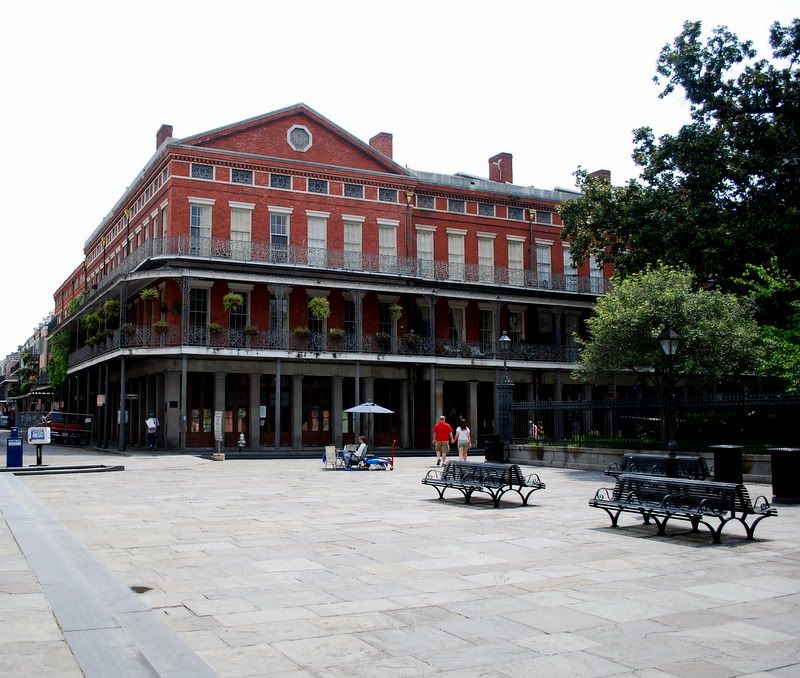 |
| The Pontalba Buildings |
Like most of New Orleans, the French Quarter, or Vieux Carre, hasn’t had an easy time of it. Founded in 1718, it’s the oldest part of the city and has fallen into disrepair more than once since then. In the 1850’s it was saved by the Micaela Almonaster Pontalba, or the Baroness Pontalba. After being betrothed at the age of 15 to her cousin Xavier Celestin de Pontalba she was sent to Paris, where it became glaringly obvious that her cousin had not married her for love, forever sullying the reputation of those who wish to swing from the family tree. Eventually the good Baroness fought to get her fortune back, eventually winning but not before having to endure several drawn-out lawsuits and the inconvenience of being shot by her father-in-law. Four times. If we consider the effects of inflation, this makes her the 50 Cent of her era. If that doesn’t make any sense to you, ask your kids.
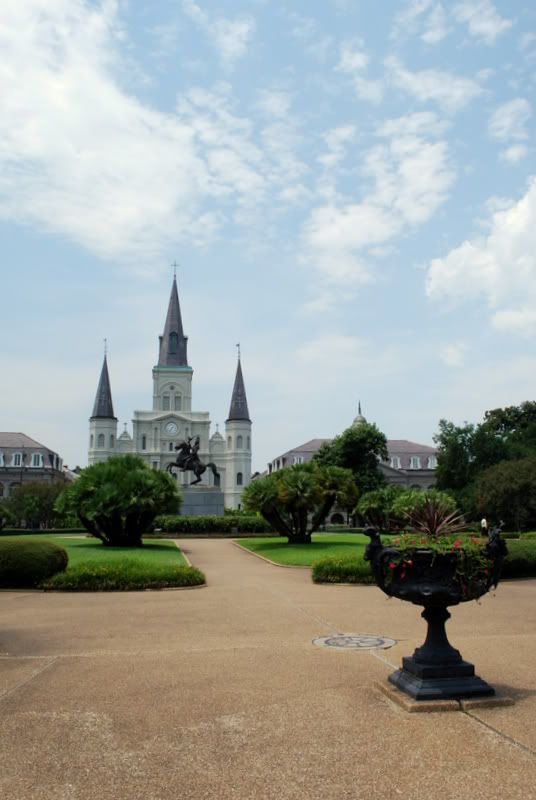 |
| Jackson Square |
Upon her return to New Orleans she commissioned the building of what are now known as the Pontalba Buildings, along Jackson Square. The Quarter again fell into disrepair in the 19th century and became a slum, home only to the poorest of the poor. In the mid-20th century another restoration effort was began and continues to this day. Now only the richest of the rich can afford to live there, but the gentrification is evened out by the muggers, rapists and Murphy artists who stalk the streets after dark. God proved his commitment to seeing how that particular social experiment plays out by sparing the Quarter during Hurricane Katrina (ok, the fact that it’s above sea level helped). Now, three years later, business was picking up and the streets, while not crowded, never wanted for company.
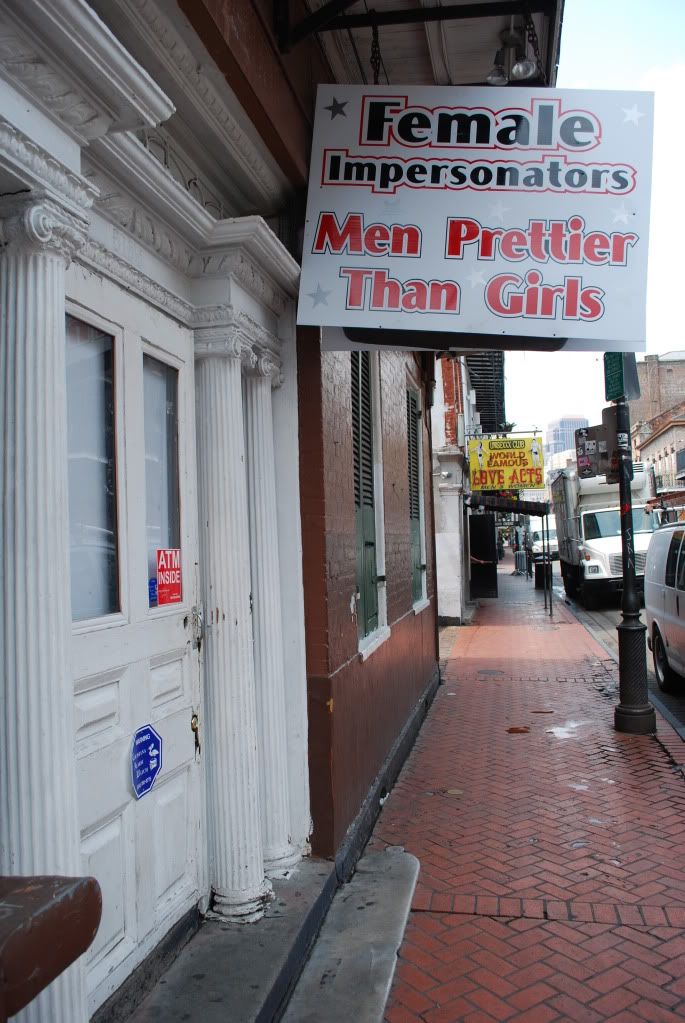 |
| They're not really. Or so I'm told. |
I walked around for about half an hour, passing Jackson Square and the Pontalba Building, as well as Cafe du Monde, the Big Easy’s best known purveyor of the famed beignet. Bourbon Street was as advertised: lined with tourist-trap strip clubs and places that promised “real live sex acts”, with accompanying snapshots on the outside billboard in case you found the wording ambiguous. The snaps were grainy-crime scene shots showing expressionless men and barely-awake women simulating, in various positions, what two very bored corpses would look like if they decided to engage in congress. My gathering impression of New Orleans was of it being the kind of place where you could have anything you wanted so long as you didn’t mind running the risk of not waking up the next morning.
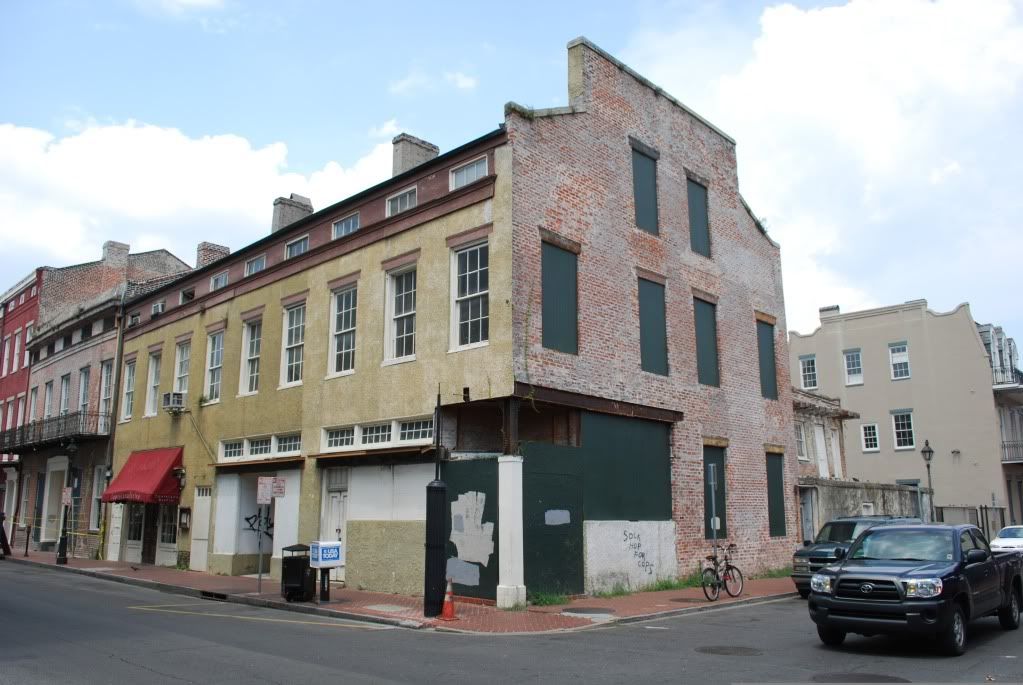 |
| Not everything in the Quarter remained untouched by Katrina |
This was backed up by Marie, a bartender in the generic boozer where I found myself soon after. As I worked through a few bottles of Abita beer she told me the story of a man in his mid-20s who had been in the previous night. He’d been trying to score weed and after finding a likely candidate had climbed into their vehicle to make the deal. In the morning his friends were waiting outside the bar looking for information; no one had seen him after he’d gotten into the car and he hadn’t been back to his hotel. I asked Marie whether they had gone to the police, and she said that had been their next stop but it was unlikely to do any good; this kind of thing wasn’t uncommon.
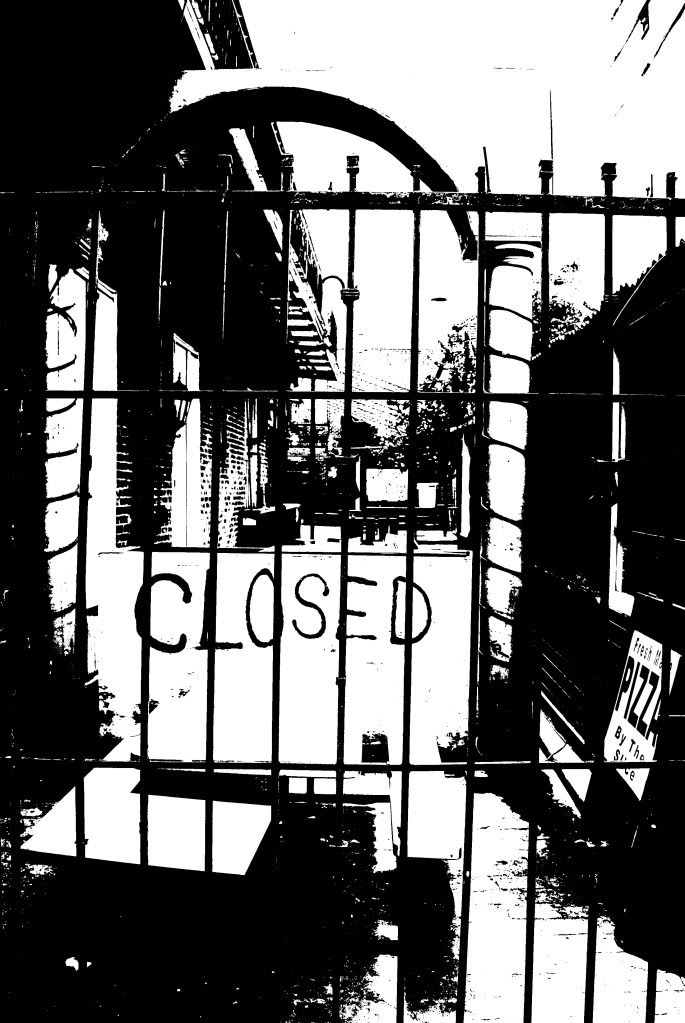 |
| Somewhere in the city. |
As she said this her face darkened and she stopped speaking. She was young, in her mid-twenties and considerably overweight. Her long straight blonde hair hung well past her shoulders and I remember noticing that she had perfect teeth. She had come to the big city from Havre, Montana a year prior and when she spoke again it was to say that she sometimes regretted the move: “I used to think that I was better off being nowhere than being back there. Now I’m not so sure. At least back home if someone kills you, they have a reason.” She stayed quiet after that, and the whole place suddenly took on the air of a carnival ground the day after it's left town. I drained my beer and headed out the door to find dinner.
To be continued
Did you miss parts 1 & 2?

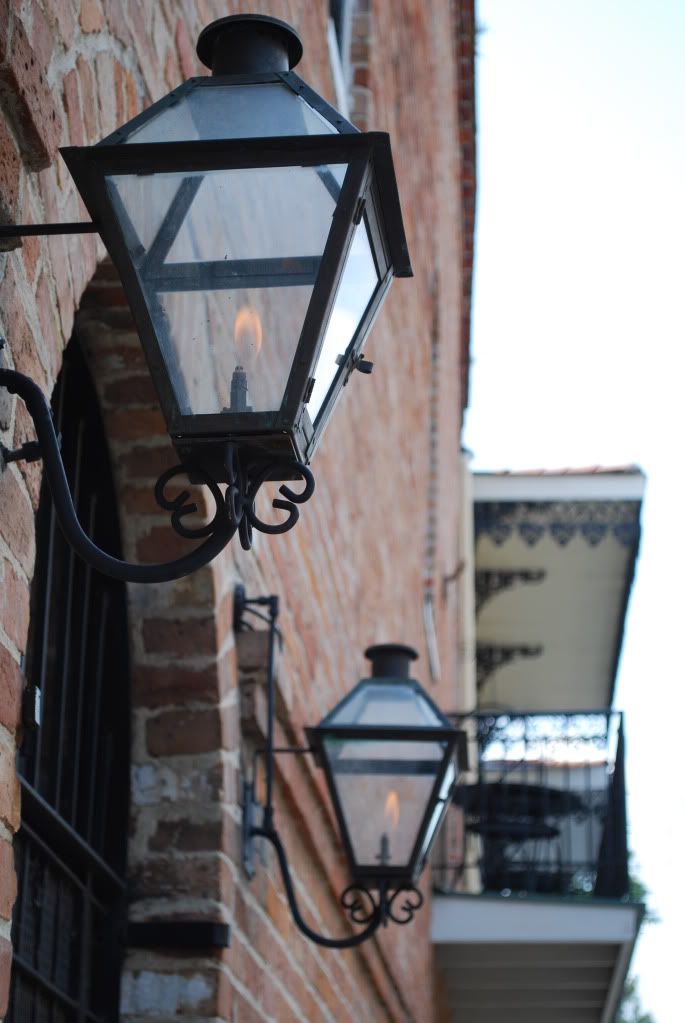
No comments:
Post a Comment